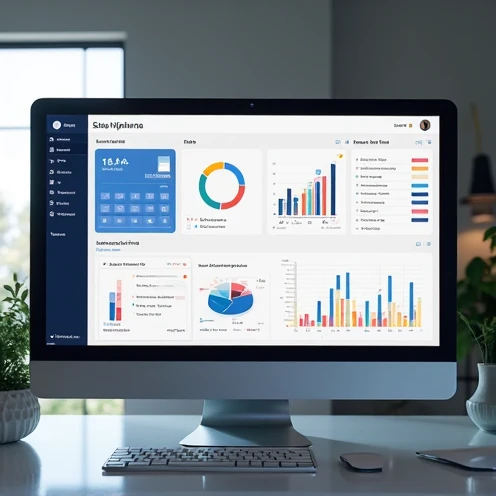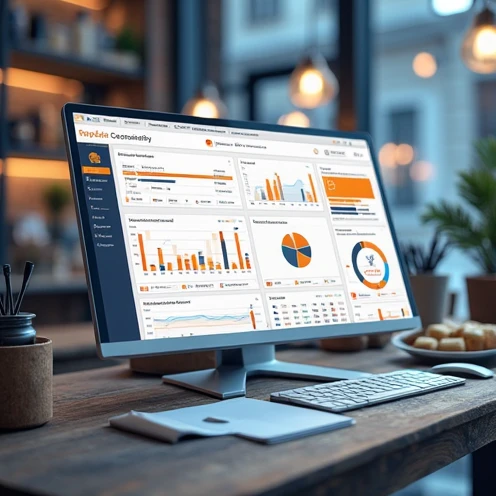QuickBooks CRM Integration: The Future of Connected Business
In today’s fast-paced digital world, businesses need tools that simplify, not complicate. That’s where QuickBooks CRM Integration becomes essential. By connecting your customer relationship management (CRM) system to QuickBooks, you can finally unite your sales, support, and finance teams under one smart ecosystem.
Iklan Google AdSense
When sales and accounting work together, customers feel it. There are fewer delays, fewer errors, and much faster service. This integration isn’t just about syncing data—it’s about transforming your operations into a well-oiled, customer-focused machine.
Understanding the Role of CRM in Modern Businesses
CRM software has evolved from simple contact databases into powerful platforms that support the entire customer journey. From lead generation to post-sale support, a CRM provides full visibility over your relationships.
Iklan Google AdSense
When used correctly, it lets your team anticipate needs, deliver faster solutions, and personalize outreach based on real-time data. This leads to stronger connections and greater loyalty.
The Power of Real-Time Data Syncing
One of the biggest advantages of integrating QuickBooks with CRM is real-time data flow. Invoices, payment status, account details—all are updated instantly across systems.
This eliminates the need for manual updates and reduces the risk of costly errors. Teams no longer need to request financial data—they can see it within their CRM in seconds.
Small Business, Big Impact
You don’t need to be a large enterprise to benefit from this technology. In fact, small businesses may see the biggest gains from QuickBooks CRM Integration.
Instead of spending hours tracking invoices, sending payment reminders, or updating spreadsheets, your CRM does it all for you. This gives your team more time to focus on customer engagement and business growth.
From Spreadsheets to CRM: A Smooth Transition
Still stuck with spreadsheets? You’re not alone, but it’s time to modernize. Spreadsheets can only take you so far—and they become a bottleneck as you grow.
CRMs allow for scalability, better collaboration, and automation. And when integrated with QuickBooks, they also bridge your front office and back office effortlessly.
Choosing the Right CRM for QuickBooks Users
Not all CRMs are created equal, especially when it comes to integration. Some platforms work better with QuickBooks than others. Look for systems that offer two-way syncing, easy setup, and robust automation features.
Popular choices include HubSpot, Zoho CRM, Insightly, and Salesforce. These platforms are known for smooth QuickBooks CRM Integration and scalable features that grow with your business.
Quickbooks CRM Integration: Top Features Every CRM Should Offer
When evaluating CRM tools, focus on what matters most: ease of use, automation, and real-time insights. Some essential features include:
- Contact and lead management
- Sales pipeline visualization
- Task automation and reminders
- Email and calendar sync
- Customizable dashboards
- Financial data view from QuickBooks
With the right features, your CRM becomes a central hub—not just for sales but for smarter decision-making across departments.
Real-Life Example: How Integration Changes Everything
Let’s say you own a home renovation business. Your sales rep closes a new deal through the CRM. Without switching apps, they trigger an invoice in QuickBooks. Once payment is received, the finance team is notified automatically, and a follow-up is scheduled by the CRM.
This seamless workflow means less stress, faster delivery, and happier clients. Plus, every team knows where the customer stands—without a single email request.
Quickbooks CRM Integration: Mistakes to Avoid When Integrating
Before diving in, take time to plan your integration. One of the biggest mistakes is syncing unclean or duplicate data. This can cause confusion and break automations.
Another common error is skipping team training. Even with the best tools, success depends on user adoption. Make sure your staff knows how to navigate the new system and update data correctly.
Future-Proofing Your Operations
The future of business is integrated, mobile, and intelligent. CRMs are becoming smarter, using AI to analyze trends and suggest actions. Soon, you’ll be able to get automated financial alerts, customer health scores, and even predictive sales forecasting—all thanks to CRM and QuickBooks working together.
Voice search, mobile dashboards, and real-time analytics will make these tools even more accessible and valuable to teams on the move.
It’s Time to Connect What Matters
CRM isn’t just software—it’s a business strategy. And when you combine it with QuickBooks, you create a complete system built for modern growth.
Whether you run a startup or a growing company, QuickBooks CRM Integration gives you the tools to eliminate inefficiencies, improve customer experience, and boost financial visibility. It’s not just integration—it’s evolution.
Iklan Bersponsor Google






